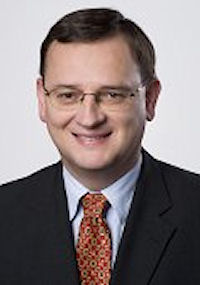Czechia - 2010 Parliamentary Election
 Elections to the lower house of the Czech Parliament took place on May 28 and 29, 2010. Social Democrats gain most votes but center and center-right parties get majority of seats in lower house. The final elections results gave the left of center Social Democrats most votes with 22.1 % followed by the Civic Democrats on 20.2 %, according to the Czech Statistical Office. The recently created TOP 09 party was third with 16.7 % followed by the Communists with 11.3 % and the Public Affairs party with 10.9 %. The Christian Democrats and the party of former Social Democrat prime minister Milos Zeman were both just under the 5.0 % threshold to entry to the lower house with around 4.5 %. The turnout was 62.6 %.
Elections to the lower house of the Czech Parliament took place on May 28 and 29, 2010. Social Democrats gain most votes but center and center-right parties get majority of seats in lower house. The final elections results gave the left of center Social Democrats most votes with 22.1 % followed by the Civic Democrats on 20.2 %, according to the Czech Statistical Office. The recently created TOP 09 party was third with 16.7 % followed by the Communists with 11.3 % and the Public Affairs party with 10.9 %. The Christian Democrats and the party of former Social Democrat prime minister Milos Zeman were both just under the 5.0 % threshold to entry to the lower house with around 4.5 %. The turnout was 62.6 %.
These figures translate into 56 seats in the 200-seat lower house for the Social Democrats. The Civic Democrats would gain 53 seats, TOP 09 41 seats, the Communists 26 seats and Public Affairs 24 seats. The Social Democrats won most votes in most regions of the country apart from the Liberec, Hradec Králové, Southern Bohemia and Central Czech regions won by the Civic Democrats. TOP 09 was the most popular party in the former Civic Democrat bastion, Prague, with around 27 % of support.
Voters were given the opportunity to circle up to four candidates on the ballot. If they gained more than 5 percent of such preferential votes, they jumped over the person ahead of them. Even the parties that had dominated Czech politics in the last decade - the Social and Civic Democrats - experienced a new phenomenon in Czech elections: preferential voting. Never before have voters given so much support to candidates at the bottom of the ballots, sending them to the lower house instead of political veterans at the top.
The Czech general elections saw voters swing away from the established parties in favor of newcomers. One of the traditional parties that got left out in the cold were the Christian Democrats, who received just 4.4 percent of the vote, falling short of the 5 percent threshold required for seats in Parliament. The position of the Christian Democrats has been complicated since the mid 1990s, because this party is based on some very specific, traditional electoral background without being capable of increasing influence over the new cohorts, or groups of voters. So it is a territorially limited political party, in southern Moravia with a large Catholic-oriented population.
The three center and center-right parties in the lower house signed a declaration 02 June 2010 over their intent to form a coalition government. Civic Democrat leader Petr Necas said it could take a month, at a maximum two, for a final coalition deal to be sealed. The leader of the Public Affairs party, Radek John, warned that his party might not join a coalition with the Civic Democrats and TOP 09.
 On 28 June 2010 the Czech Republic had a new prime minister and was on track for a new government, after more than a year of political limbo caused by the downfall of Mirek Topolánek's center-right coalition. Petr Necas was appointed by President Klaus in a brief ceremony at Prague Castle. He headed a center-right government that promised austerity measures to tame the budget deficit and a concerted campaign against corruption.
On 28 June 2010 the Czech Republic had a new prime minister and was on track for a new government, after more than a year of political limbo caused by the downfall of Mirek Topolánek's center-right coalition. Petr Necas was appointed by President Klaus in a brief ceremony at Prague Castle. He headed a center-right government that promised austerity measures to tame the budget deficit and a concerted campaign against corruption.
It would be hard to find a greater contrast to outgoing leader Mirek Topolánek. Petr Necas, 45, church-going, a father of four, is unlikely to leave his wife for one of his party colleagues, or punch tabloid photographers in the street, or stick his middle finger up at rivals in parliament. The only thing Petr Necas appears to share in common with Mirek Topolánek are his Moravian origins, his conservative politics and his considerable height. Described in the Czech media as "Mr Clean", his worst character trait, he told a newspaper recently, is his grumpiness, something he seems to keep well hidden. His greatest sin appears to be an addiction to chocolate. Petr Necas was born in Uherské Hradiste, South Moravia, in 1964, emerging from Brno's Purkyne University with a physics degree. After national service and four years working at the state-owned electronics company Tesla, he entered politics.
He served in a number of senior posts, including deputy defence minister, chairman of the lower house defence and security committee and, most recently, labour and social affairs minister, a post he occupied until the collapse of the Topolánek government in 2009.
|
NEWSLETTER
|
| Join the GlobalSecurity.org mailing list |
|
|
|

